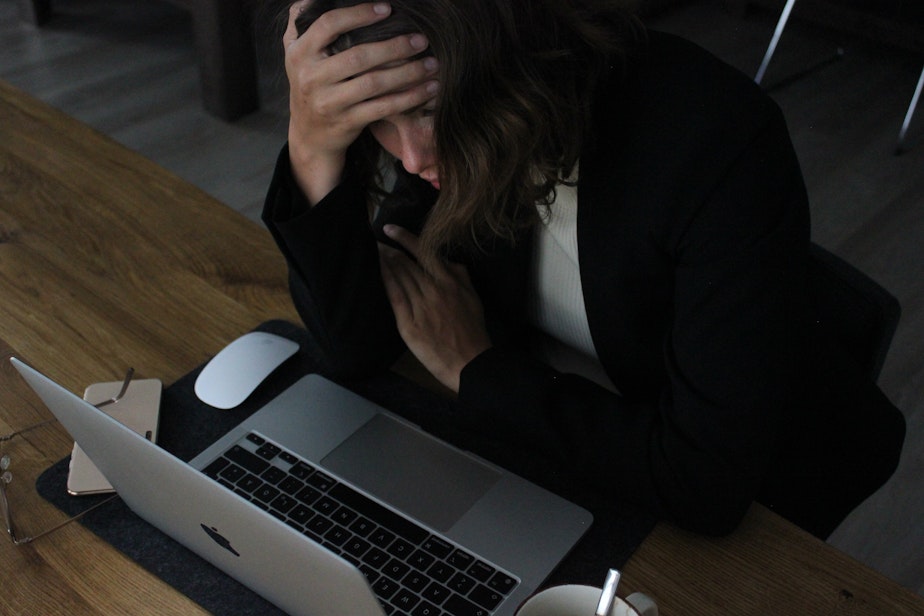Adrenaline boost, then disillusionment: This is your brain on disaster cascade

As the Covid-19 pandemic wears on, a “twin pandemic” is emerging— a pandemic-related mental health crisis. While many are recovering, others are experiencing the impacts of the pandemic all over again.
Dr. Kira Mauseth, a specialist in disaster response and co-lead of the Washington Department of Health's Behavioral Health Strike Team, spoke with Soundside about the varied responses from the pandemic and what we can do to regulate and readjust.
When we experience an event like an earthquake, flood, or a pandemic, we move through phases of disaster. This is helpful tool for behavioral health specialists to understand our collective mental state.
Related: Welcome to the disillusionment stage of Covid-19
Adrenaline-boosting phases like the heroic phase bring out bursts of altruism, while the disillusionment phase can leave one feeling exhausted and abandoned.
When Covid-19 hit, Mauseth said we moved through the phases predictably. But then more variants of the virus began to spread through the community.
"As we worked our way into the final phase, which is the reconstruction into recovery phase, we had the Delta variant," Mauseth said, "so it basically restarted the cycle over in a lot of cases for many, many people."
Restarting those phases is known as a disaster cascade.
Mauseth said that she believes most of us are doing okay and that many of us are entering a phase of reconstruction.
But one stand-out group is still struggling — teens.
In a recent study, the Centers for Disease Control and Prevention found that — as a result of school closures, social isolation, family economic hardship or loss — an alarming number of teens in the U.S. were severely depressed.
"That level of isolation and separation really was much more impactful to younger folks than it was to older folks," Mauseth said. "What we're seeing now is a reflection of a lot of kids and youth just trying to get their feet on the ground. Trying to figure out how to be."
Regardless of age, Mauseth urges clients to ground themselves in realistic opportunities and the things that energize them. She said one empowering step forward is to find the things that make you feel vital and energized. This involves focusing on the how and not the what.
"Focus on taking time before you respond. Focus on regulating your reaction. Focus on how you act, how you think, how you listen," she said, "because how you do things is what you can control."
Hear the full conversation by clicking the audio above.





